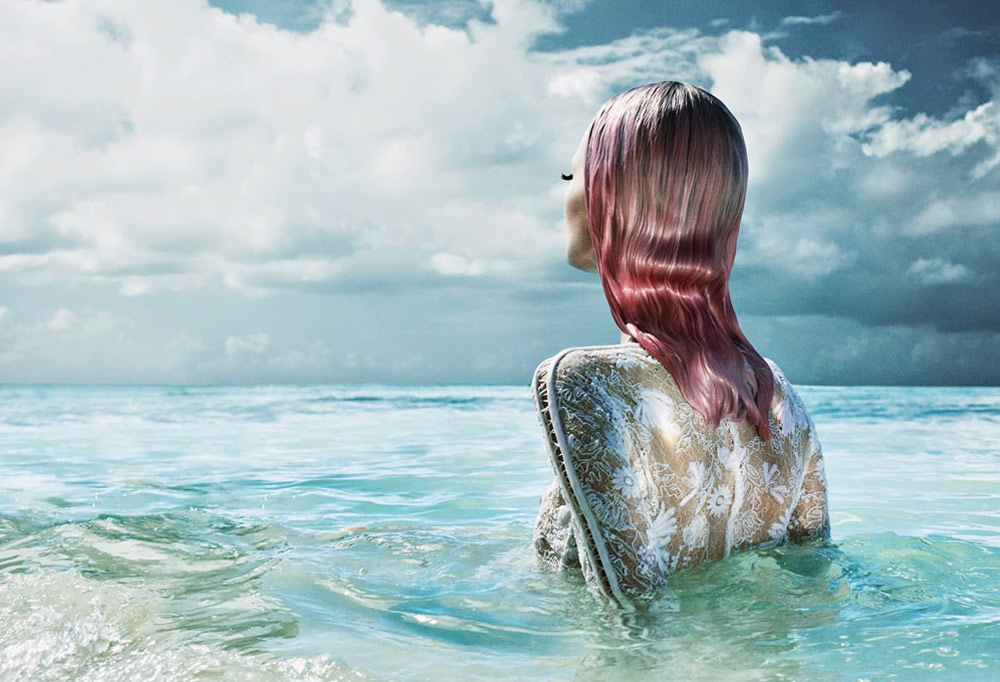#travel #water #happy
“Wallace J Nichols, a marine biologist and the author of Blue Mind wrote a book about the physical and psychological benefits of water, read it and you will that since humans started exploring the planet, we have followed the water“– Paul Ebeling
Crossing oceans gave way to new discoveries and changed the course of history; chasing rivers opened our horizons. As travelers, we seek waterways on holiday, driving new coastlines in search of wild surfing spots. We return to familiar blue spaces we grew up around. Month after month, water graces the covers of travel magazines.
The immeasurable sense of peace that we feel around water is what Mr. Nichols calls our ‘blue mind’ a chance to escape the hyper-connected, overstimulated state of modern-day life, in favor of a rare moment of solitude.
Research has long found that humans are pulled towards Mother Nature’s blue partly for its restorative benefits. Take the Victorians, for example: doctors in that era prescribed sea air as a cure for all sorts of issues, from pulmonary complications to mental-health conditions.
Research has shown us that being near, in, on or under water can provide a long list of benefits for our mind and body, including lowering stress and anxiety, increasing an overall sense of well-being and happiness, a lower heart and breathing rate, and safe, better workouts.
The human voice is considered the number-one source of workplace stress
Real-estate data suggests a water view adds a 116.1% premium to a property; and real-world figures reveal we’re willing to pay 10 to 20% more for the same room with a sea view in a hotel.
For the ultimate in luxury, people seek out overwater bungalows in the Maldives, and underwater hotels all around the world. And even in places where water is not always a given, such as urban metropolises including Pittsburgh and Austin, crowds frequent refurbished riverways and gather in freshwater pools. Paris, too, now has its long-anticipated canal swimming pools, where tourists and locals alike can take a dip.
Our love of water is pervasive, and the reasons behind why we travel to be beside the water can be hard to articulate. :You’re paying for a feeling,” Mr. Nichols tells us. “When you ask people to describe that feeling, it’s hard for them to say anything other than they really like it, need it, and are willing to pay a lot of money for it.“
During a British study last yr, researchers observed people on a visit to the aquarium: participants watched an empty tank of water, a partially stocked tank, home to fish, crustaceans, and plants, then a fully stocked tank, containing 2X the number of species. Other experiments involved measuring people’s heart rates and blood pressure while watching either an empty, partially stocked, or fully stocked tank. As it turned out, even just looking at an empty body of water at an aquarium proved to be relaxing.
As wildlife, flora and fauna increased in the tank, so too did the therapeutic benefits of standing there. With more wildlife, people’s blood pressure and heart rates dropped and they wanted to stay longer. It is a strong argument for keeping our planet healthy.
“Our oceans, waterways and the life they contain are so much more than their ecological, economic and educational value. They have vast emotional benefits. They make life on earth possible, but also worth living” says Mr. Nichols. “I like to imagine the world would be a better place if we all understood just how true that is. Water is medicine, for everyone, for life.”
Enjoy your travels this Spring and Summer, the chaos is ending, Keep the Faith!
#travel, #water, #happy,









